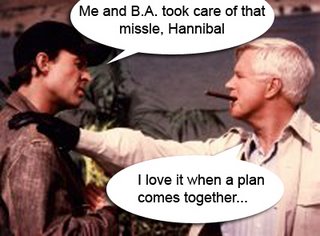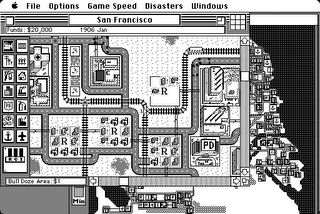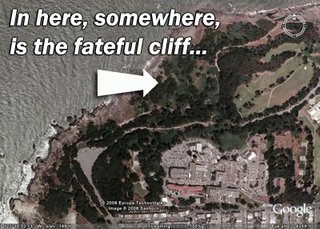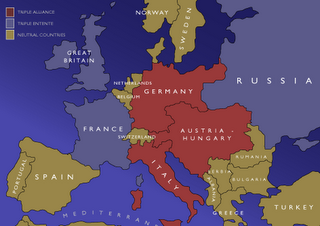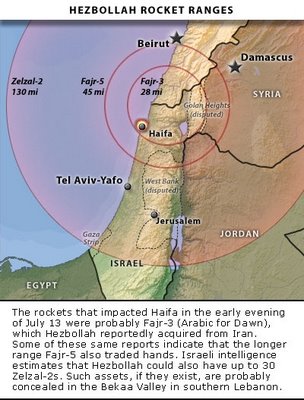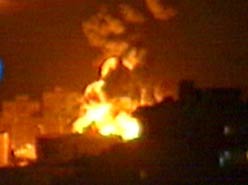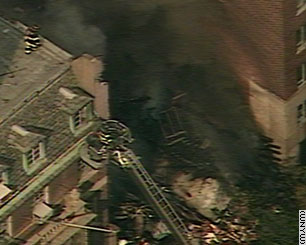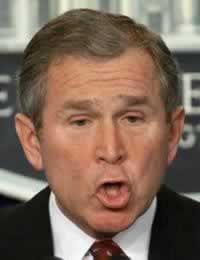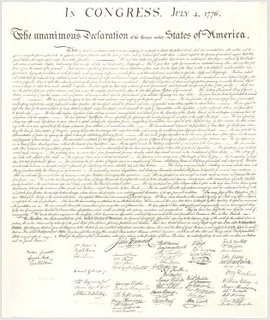The Danger of the Israeli Cease-Fire
International pressure for a cease-fire has been unrelenting during the three weeks of the Israeli war in Gaza and Lebanon, yet until July 30th Israel had wisely ignored the opinions of the United Nations, which is notoriously biased against Israel, and the separate nations who have not yet experienced the harsh realities of being the target of terrorists.
 Today a 48 hour cease-fire was agreed upon, ostensibly to allow Israel time to investigate the explosions at Qana that occurred following an Israeli attack. Though immediately blamed for the deaths of civilians at Qana, the IDF claims the building did not collapse for several hours after their bombing, which raises doubts as to their rocket being the cause of the collapse. Earlier this summer Israel was condemned for the deaths of eight Palestinians following an explosion on a Gazan beach, but an investigation discovered the explosive was a Hamas land-mine, not an Israeli rocket. It is understandable that Israel wishes to investigate the claims of the Lebanese and the U.N. that it was Israeli ordinance that was responsible for the deaths in Qana.
Today a 48 hour cease-fire was agreed upon, ostensibly to allow Israel time to investigate the explosions at Qana that occurred following an Israeli attack. Though immediately blamed for the deaths of civilians at Qana, the IDF claims the building did not collapse for several hours after their bombing, which raises doubts as to their rocket being the cause of the collapse. Earlier this summer Israel was condemned for the deaths of eight Palestinians following an explosion on a Gazan beach, but an investigation discovered the explosive was a Hamas land-mine, not an Israeli rocket. It is understandable that Israel wishes to investigate the claims of the Lebanese and the U.N. that it was Israeli ordinance that was responsible for the deaths in Qana.None the less, this cessation of hostilities is a very dangerous move for Israel. Israel's Prime Minister Ehud Olmert has stated the four very specific aims for Israel's current action in Lebanon:
- the abducted Israeli soldiers are returned
- Hezbollah is disarmed
- the Lebanese army is deployed along the border
- the Lebanese government regains sovereignty over the entire country
For years the most potent weapon in Israel's arsenal has been the perception of the Israeli Defense Force's invincibility. The appearance that Hezbollah has fought Israel to a draw severely weakens Israel's position and strengthens that of its enemies. Since Hezbollah merely needs to survive while drawing out the conflict as long as possible, a cease-fire can only benefit Hezbollah, while a vincible Israel has lost one of its most potent weapons -- fear -- and gained nothing in return.
Additionally, the logistics of a reliable cease-fire are challenging. How exactly does a nation negotiate a cease-fire with an armed militia, and how do you guarantee the militia is negotiating in good-faith? The Lebanese government has shown itself to be powerless to influence Hezbollah's actions, and history has many recent examples that agreements made with Hezbollah aren't kept. (For example,the day after Israel's withdrawal from Lebanon in May of 2000, Shaikh Hassan Nasrallah, the secretary-general of Hezbollah, refused to accept that Israel had fully complied with Resolution 425 and instead merely added new demands.)
Despite the dubious strategic value of a cease-fire, the international community was adamant that Israel agree to one, and immediately. The E.U. is particularly concerned that the continuing violence will plunge Lebanon back into the worst stages of its previous civil war. The French Foreign Minister Philippe Douste-Blazy stated that "there is a risk of a very dangerous spiral of violence, which could destabilize the entire region." Since he is concerned that Israel's recent actions could instigate a dangerous spiral of violence, we can infer that he did not consider the unrelenting Hezbollah rocket attacks nor the kidnapping of Israeli soldiers that precipitated the current crisis to have been particularly destabilizing.
 The bias against Israel in the world's opinion, and specifically at the United Nations, is staggering. Though Secretary General Annan condemned Hezbollah's initial attack, he continued by criticizing Israel's efforts to defend itself as disproportionate, considering that Hezbollah's rockets "have produced no casualties in the past month." Apparently trying to kill Israelis isn't a crime unless you actually accomplish it.
The bias against Israel in the world's opinion, and specifically at the United Nations, is staggering. Though Secretary General Annan condemned Hezbollah's initial attack, he continued by criticizing Israel's efforts to defend itself as disproportionate, considering that Hezbollah's rockets "have produced no casualties in the past month." Apparently trying to kill Israelis isn't a crime unless you actually accomplish it.Though Israel has precious few allies, they long ago learned not to rely on the fickle support of the United Nations, nor regard their equally fickle condemnations. The constant refrain from the international community during the past three weeks has been that the lives of two Israeli soldiers aren't worth the hundreds of Lebanese lives that have been lost. The idea that simple arithmetic should dictate Israel's defense strategy is as absurd as the implication that East Timor, Paraguay, or Iceland's opinions on the matter of Israel's self-defense are more relevant than Israel's own.
The overwhelming international pressure for Israel to return to the status quo of yelling "quit it" over the Lebanese border after each rocket attack exemplifies the dramatic double-standard amongst the member nations of the U.N. with regard to Israel. The apparent expectation is that Israel will indefinitely continue to allow assaults upon its national sovereignty and its civilians that no other nation would be expected to endure. Is it surprising that Israel has decided there is no value in a proportional response, no value in the United Nations (which failed to enforce its own resolution 1559 re: the Lebanese border) and no value in negotiating with terrorists?
Terrorism will only cease to be a successful tactic when the cost to terrorists and their sponsor nations grows too great to endure. Though it has accepted a 48-hour cease-fire, Israel must resist the imminent international pressure to accept a permanent cease-fire without having achieved its goals in the region; specifically the disabling of Hezbollah. To do so, after Hezbollah has been emboldened and Israel's military reputation diminished, would leave Israel in a notably weakened position.

